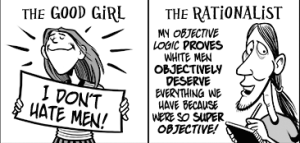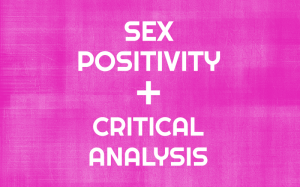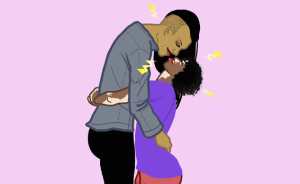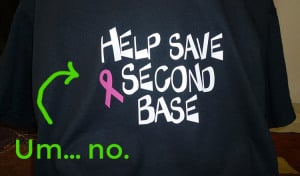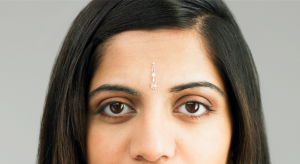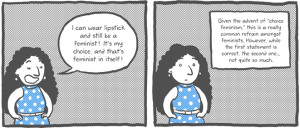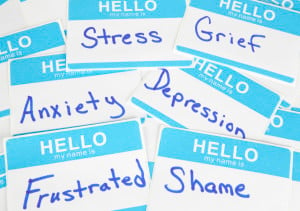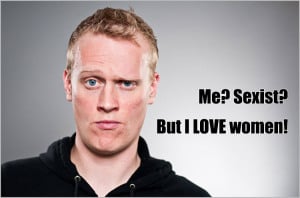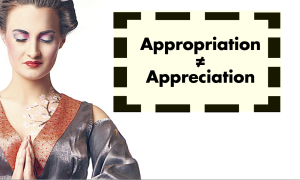True Tea. Your questions, my brutal honesty. Hey guys, it’s Kat, and it’s time for your daily dose of True Tea. Today I’m drinking iced tea from Brisk. It’s extremely fancy and expensive. Anyways, let’s just jump right into today’s e-mail.
Kat, first I wanted to say that I think you’re so brave for speaking on issues of race, LGBTQIA+ community, and so much more. Your videos have been very helpful to me and my friends that I thank you for that.
In a nutshell, one of my white friends, we’ll call her Rebecca, of over 8+ years sent me a long rant about something race-related, and I told her I disagreed and then tried to educate her, but she wouldn’t listen to me. She literally used every white feminist and white supremacist rhetoric you can think of, and she’s vehement in defending her white privilege and her white fragility. I have unfriended her as of now, and we are no longer friends.
My biggest question is: While talking to her, the most difficult thing I had to deal with was: How do I talk to white people who use the “Italian, Jewish, Irish, Catholic, Russian” oppression to say that they do experience racism as a white person?
Okay. So first of all, true tea, I think that everyone who gets into these really long conversations with their white friends about racism who are starting to feel really bothered by it and really upset by it should just unfriend these people.
One of the things I did on my personal Facebook page is to defriend basically everyone who started to post really shifty things. Especially around the time of the whole Mike Brown situation. I have definitely made my social media experience more positive because I got rid of a lot of those white people who were slowly, but surely revealing their white hoods in the midst of that conversation.
But personally, I’m always kind of entertained when white people bring up the Irish or the Italian in conversations about racism because they always leave out some of the most vital facts about that whole situation.
First of all, the Irish were definitely enslaved, but not in the same way that Black people were slaves. I think it’s important to understand that there were several different types of slavery. Most of the Irish were in indentured servitude, essentially.
It was not comparable to chattel slavery that Africans went through. It’s not even the same thing. But they were definitely enslaved and they were definitely priced at a lower price than Black slaves. That’s all very true. However, what people need to understand about the Irish when they came to America is that they were not considered white, okay?
Whiteness is a construct. That’s something that I think people need to all understand. Whiteness is a construct, and there was a time where there were certain groups of people who we look at in America as white that weren’t white at a certain point in time. The Irish became white through basically supporting anti-black unions who were trying to exclude Black workers from the union.
It’s true that the Irish went through a lot in this country when this country was first established. It’s also kind of facetious to compare that to the racism that Black people experience because it’s really not the same in America. If you’re really interested in looking into the deeper history of this specific topic, I really suggest looking at this book called How the Irish Became White. It’s a really, really good resource. I think you can find a lot of it online. Look into that.
I think we all need to understand that both the Irish and the Italians are Catholic usually. Obviously not all Irish and Italian people are Catholic – but they’re Catholic. And if you are Irish or Italian and you wanted to join the KKK, a lot of people will not accept you into the KKK because you’re Catholic. There’s a lot of oppression of religion that’s happened. The oppression of the Catholics is very, very true. I think it’s also really important – I’ve been thinking about this – to understand that there’s a difference between what happens in America and what happens in Europe.
I think in the UK, they very recently have removed anti-Irish signage on places. And if you look at the demographics of who is poor in the UK, there are more impoverished Irish people than any other white European group. That’s very true; that’s very real in Europe. In America, not so much. I actually asked my followers very recently, if they were Irish, if they could tell me how the oppression of the Irish affects them to this day. I wanted to know what that looked like for them and how they felt about it today. The overwhelming majority said that they maybe do have someone not too far removed in their family who was technically enslaved. But it doesn’t really affect them today.
The Irish and the Italians both assimilated into whiteness in America. They, in a lot of ways, let go of their cultures. In a lot ways, let go of their languages and their customs that they had. There’s a lot of lost history within the Irish and the Italians because of that. The idea was that they needed to be more like a white American. And they were, and now we don’t really look at them any differently than any other white person in America.
This is not a very eloquent video. I actually wanted to make a video about this specifically, but this is True Tea – I’m being raw.
I think it’s a silly comparison. The thing I always say in response to those people is “How does that affect you today?” because I can trace how slavery affects me today. I can trace how slavery affects black people to this day. And these things are observable, you know? The redlining of districts maintains legal segregation that was taken off of the books about 52 years ago. Yes it’s true that they were oppressed, but how does that affect you today?
A lot of people that I’ve spoken to that are native to Ireland have actually said that it’s really annoying when Irish Americans bring that up because it is still something that’s kind of a raw wound in Ireland. Of course Ireland has its racism problems, but it’s still kind of a raw wound there so it’s kind of silly to say it over here because it’s just not the same.
These are not the same situations.
Of course, in Ireland, you’re dealing with an older country, older history. Racism is slightly different in Europe. It’s still very much the same in many ways, but it’s slightly different because a lot of it’s more xenophobia than anything else. A lot of it is more oppression or rejection of certain religious ideals than anything else.
Anyway, I try to stick to American racism because that’s what I know.
Anyway, that’s enough True Tea for today. I don’t know if that’s the best way to answer your question, but I hope it was a brew that you enjoyed nonetheless.
If you like this video, you can support my work by becoming a monthly Patreon patron.





